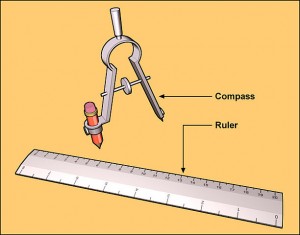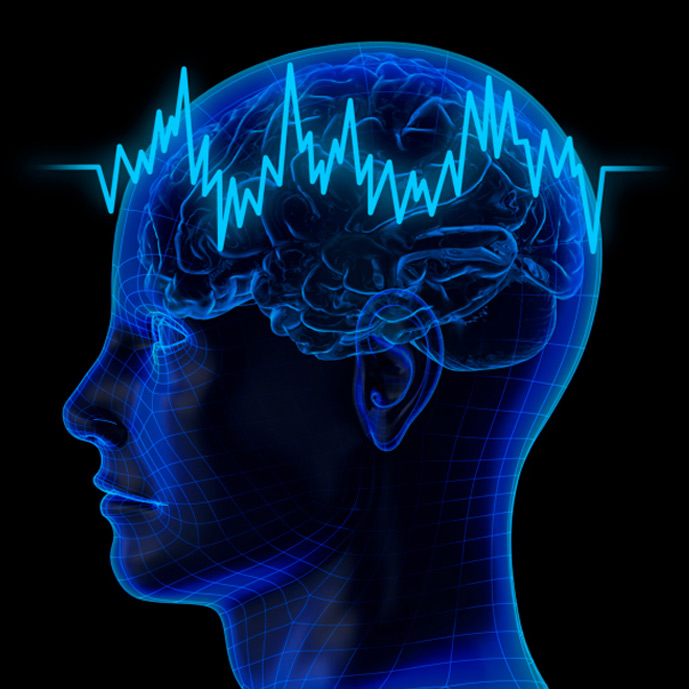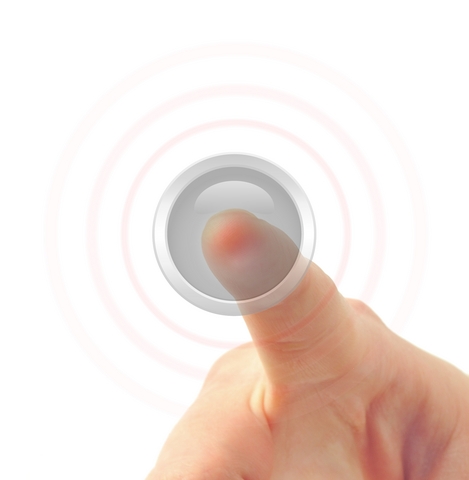Is Bipolar Disorder Real? Version Two: Is There a Test for Bipolar Disorder?
For the first installment in this series, on whether or not bipolar disorder is a brain state, click here.
I’m going to continue with my occasional feature about what is meant when people ask whether or not bipolar disorder is real. The first article asked whether or not bipolar disorder is a brain state, but this one will focus on whether or not there is a test for bipolar disorder. The two questions are to some extent connected, as they rest on a confusion between what is real and what is scientific.
Caring About a Test
My impression of the question of whether or not there is a test for bipolar disorder, is that it comes from a version of what is called “positivism,” the view that only things that are verifiable through the scientific method are actually meaningful. A precursor to this appears in Plato’s Euthyphro (though he is not there arguing that only measurable questions are meaningful, only that they are easily settled):“Suppose for example that you and I, my good friend, differ about a number; do differences of this sort make us enemies and set us at variance with one another? Do we not go at once to arithmetic, and put an end to them by a sum?” (Euthyphro 7b-c source)
This belief that only things that can be measured are real hearkens back to a deeper belief, which is that only things that are public are real. That is, since measurement is something that can be easily shared between people, we can establish its veracity together. Other beliefs must depend on our mental states, and those cannot be public.
The Paradox of Intersubjectivity
Positivism as a theory is largely dead because it is ultimately self-refuting. There is no measurement that can prove the theory itself, so it becomes unverifiable and therefore meaningless. However, that doesn’t get rid of what I have claimed is the deeper problem: what about things that are not public, like, for example, the mental states that are essential to a diagnosis of bipolar disorder?
In one sense, our mental states are completely private. Other people are not telepathic, so people can’t get into our heads. True, there is something going on to the brain, but that pushes us back into the problem of brain states I dealt with in the last installment. To summarize, I argued there that even if bipolar disorder correlates with a given brain state, that is not a part of the definition of bipolar disorder.
On the other hand, we largely work on the assumption that we share the same basic categories of mental states. We assume that other people’s sadness is not completely unlike our own, and that other people’s understanding of the number two is not completely unlike our own. True, these states can have public manifestations, but in order to describe what they are public manifestations of, we need to make reference to our own mental states.

Source: Huntington Theatre Company - CC BY 2.0
However, in comes the paradox. When it comes to other people’s mental states, we end up with only approximations. We can use visible evidence and verbal evidence to try to understand when the mental states of another person resemble our own, and this process can never be perfect.
Understanding the Current Test for Bipolar Disorder
In fact, this is exactly what the standard test for bipolar disorder, the SCID-I or “Structured Clinical Interview for DSM-IV Axis I Disorders” does (I discuss the SCID-I more in depth in my page about diagnosis. It is a questionnaire that attempts to elicit the descriptions of a mental states that are relevant to various conditions. Many of those questions are open-ended, though, which is why we can’t simply take an online bipolar test. Someone who is trained in interpreting answers to understand the intersubjective states behind them needs to examine the answers.
So, there is a test for bipolar disorder. It is just not the kind of test discussed in the Euthyphro or desired by positivists. Rather, it is the best approximation that we have of the mental states associated with bipolar disorder. True, this test isn’t perfect, which is why people’s diagnoses change. However, that doesn’t mean that there is no test for bipolar disorder and it certainly doesn’t imply that bipolar disorder isn’t real.
Linguistic Note: Yes, I dangled a participle, and I even italicized it. Dangling participles are a natural part of English, and the movement to get rid of them comes from a misguided attempt to imitate Latin. It’s time to get rid of that silly grammatical rule, and the best way to do so is to violate it as much as possible.










Daniel: You put that very well! Another part of the problem, though, is beyond the very real philosophical viewpoint that “if you can’t test it, it isn’t real.” The rest of it is, “okay, it’s real, but how can you tell???” Without the kind of test that the scientific method has developed so well (X + Y always = Z) you get “it depends.” As the parent of someone with a bipolar diagnosis, I find this terrifying. All I can do is find a doctor I trust and try stuff. But what if I’m mistaken and the doctor isn’t worthy of trust? What if there’s a better one in the next office over — how would I know? What if all the doctors in my city are wrong? What if my doctor is great but he misinterprets something in just one case, my son’s case? Some nut on the internet claims that a bizarre diet can eliminate even the most severe symptoms, how can I be sure it’s wrong? After all, no one knows what causes bipolar disorders or why the medicines help (or don’t help) — maybe there’s something to these claims after all. The very idea that we might spend tens of thousands of dollars and years of my son’s life on the wrong track is so frightening.
Even people comfortable with the idea that not all truth can be determined by the scientific method can balk when having to deal with something so vital to their or their child’s well-being that can’t be diagnosed by a blood test and treated with a medication that “always” works. But people who say it isn’t real in the first place have no idea what they’re talking about.
How do other readers here determine for themselves what treatment to try and whose research to believe?
Hi Gail,
Thanks for the great question!
There’s a real difficulty in choosing experts, especially when we aren’t experts ourselves. This applies to crafts that rely on harder sciences, too, like physical medicine. I agree that it’s really terrifying, and I can’t even imagine how much more terrifying it would be if this were about my children instead of myself.
At the end of the day, there’s one thing we can do as non-experts: see if what the experts are doing is actually working. I went through about a five year period where I was put on one SSRI after another, which had not only no effect but actually made things worse. It turns out that treatment paradigm was wrong, as most psychiatrists now agree, and I’m now on mood stabilizers.
What I learned through that experience was that, if something isn’t working, I need to look elsewhere. I’ve shopped around a lot for a treatment that works for me, and ultimately have come to the conclusion that I’m the best judge of whether something is working or not. Now I’m happy with my treatment, but it was definitely a process of trial and error.
Best,
Daniel
Hey Daniel!
I hear comments a lot about whether or not mental illness is real along with how there really isn’t a test for it, etc.
My response to people is that research of the brain is still very young. The brain is a very complex organ, but it is an organ like all other organs in our body. Our liver, pancreas, lungs etc. can have something happen to them. Many years ago there were no tests for diabetes, cancer, heart disease and many other health related issues. It was all based on symtpoms. I feel as research on the brain continues, there will eventually be tests to determine what part of your brain is affected and more effective and speedy treatments available. Hopefullly there will be more treatments available for all brain disorders.
Because it’s not visible like a broken arm or a wheelchair, doesn’t mean it’s not real.
Hi Andrea!
Thanks so much for your response. I’m really hopeful that there will be a test for bipolar disorder in the future. I think we’re dealing here with a very specific brain disorder that there will likely be a test for. I guess what I was trying to get at is that, as you say, even though we don’t have one yet, that doesn’t mean it isn’t real. I also think that even if we never find one, it doesn’t mean it isn’t real. That may apply more to things like borderline personality disorder, but if it does end up in that category (though I don’t think it will), it will still be something we can call “real.”
Best,
Daniel
Maybe the term ‘mental illness’ isn’t correct in its current usage. Personal or private perception whether it alines itself to the accepted definitions or not, for me would be a better discription.
In another post you mentioned how you can see a number of different personality traits being prominent at different times of the cycle, and I also find that this way of understanding what is going on inside my head is an easier style to get a handle on it myself. Yes I suppose that there is a certain amount of externalising, but also with the admittance of internalising as well by admitting that it is my head, or atleast the self beliefs that come from it that change. The external part for me would include the way that I react to the outside stimuli while the internal wool seems to be water logged.
So in agreeance with your synthesis, yes mental ilness in itself exists, but to group the various manifestations of it into a defined grouping to me is not only wrong, but short-sighted as well.
Thanks, Jeffrey. That’s a great point. I plan to have further installments in this series that deal with questions of how mentally illness is divided up, and also whether or not “illness” is the right term.